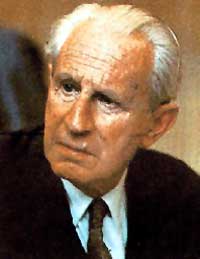Para mim, uma das genealogias do romance mais interessantes que possuímos é a que Lukács expõe em A Teoria do Romance. Para este autor o romance era um descendente directo da épica e das condições que levaram a que esta deixasse de existir. Claro que isto que aqui exponho é uma visão em termos muitos gerais. Mas repare-se neste excerto:
The novel comprises the essence of its totality between the beginning and the end, and thereby raises an individual to the infinite heights of one who must create an entire world through his experience and who must maintain that world in equilibrium – heights which no epic individual, not even Dante’s, could reach, because the epic individual owed his significance to the grace accorded him, not to his pure individuality. But just because the novel can only compromise the individual in this way, he becomes a mere instrument, and his central position in the work means only that he is particularly well suited to reveal a certain problematic of life.
The novel comprises the essence of its totality between the beginning and the end, and thereby raises an individual to the infinite heights of one who must create an entire world through his experience and who must maintain that world in equilibrium – heights which no epic individual, not even Dante’s, could reach, because the epic individual owed his significance to the grace accorded him, not to his pure individuality. But just because the novel can only compromise the individual in this way, he becomes a mere instrument, and his central position in the work means only that he is particularly well suited to reveal a certain problematic of life.
Georg Lukács, The Theory of the Novel: A Historico-philosophical Essay on the Forms of Great Epic Literature, Anna Bostock (trad.), The M.I.T. Press, Cambridge, Massachussets, 1971.


























.jpg)

